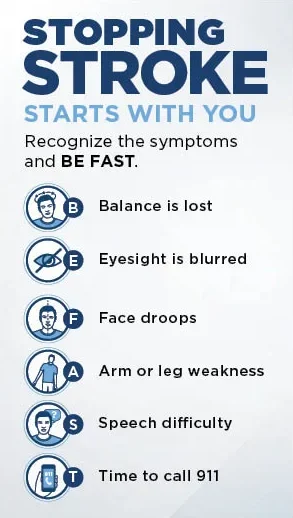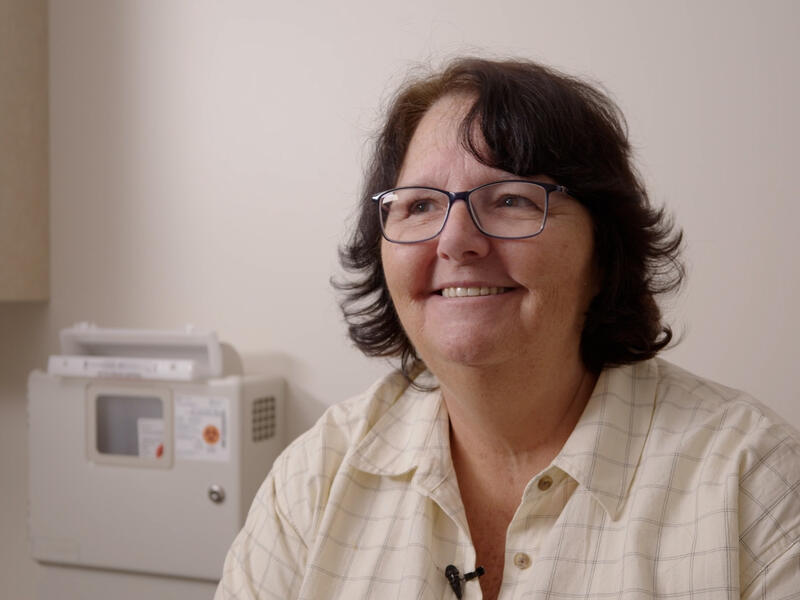Life changed quickly for the VerMeers in 2023.
Jackie VerMeer, the matriarch of the family, thought she was simply experiencing knee pain after a knee surgery.
‘I didn’t feel like anything was wrong’
Jackie was at home one afternoon in the midst of doing laundry.
“I thought I had better get it folded. So, I sat down on the floor, and I couldn’t get back up. I could not get back up.”
She didn’t fully realize it at the time, but she had lost all her strength on her left side of her body. Her daughter and next-door neighbor Jamie VerMeer just happened to be stopping by – and found her mother sitting on the ground.
Jackie had been there for five hours before she was found.
“She could see in the doorway, (and saw) that I was on the floor. It scared her,” Jackie recalled. “They came in and she said she could see that my face was drooping, but I couldn’t feel anything. I didn’t feel like there was anything wrong.”
Little did Jackie know she was in the middle of a stroke.
‘Time is brain’
Jamie called her sister Julie. Julie and her husband tried to move Jackie, but realized “she had zero mobility,” said Jamie.
Julie then called an ambulance, and Jackie was rushed to the Sanford USD Medical Center emergency room in Sioux Falls, South Dakota.
There’s an acronym, BE FAST, providers teach to help identify if someone is having a stroke.
BE FAST:
- Balance loss
- Eyes/vision loss
- Facial droop
- Arm weakness
- Slurred speech
- Time to call 911

Graphic by Emilee Kreykes, Sanford Health
Dr. Karan Topiwala and Dr. Ahmed Abd Elazim are neurologists at Sanford Health, and two providers who have helped Jackie. They say the phrase “time is brain” rings true when it comes to strokes – the longer you wait, the risk of losing brain function grows.
“There’s a lot of different testing and evaluations that have to happen that doctors, emergency room doctors or stroke doctors, neurology doctors, are trained to do,” said Dr. Topiwala. “So, the sooner somebody is in the hospital, the better it is.”
“Every minute, about 1.9 million neurons die in a stroke, unless we do an immediate intervention,” explained Dr. Abd Elazim.
Overnight recovery
And an immediate intervention they did. Jackie was brought to the ER at 9 p.m. By 10:30, the blood clot was completely removed.
“Her symptoms started reversing immediately after the procedure. By the next morning, all her weakness was gone. The slow speech she was having was gone. It was completely night and day from how she came to us the night before,” said Dr. Topiwala.
Jackie said to this day, she is still astounded at the immediate turnaround.
“The weirdest thing for me to think about was that I literally just had brain surgery, but I was not struggling to talk, and immediately when I woke up in bed, I knew my kids that were there, and I was talking to them, and I wasn’t struggling to get the words out,” said Jackie.
She said she attributes the quick recovery to Dr. Abd Elazim and Dr. Topiwala’s teamwork.
“They were prepared. When I got here, both of the neurologists were literally waiting for me to get out of the ambulance, and we immediately went to surgery. Yeah. And they kept telling me, time is brain, time is brain.”
Learn more
- Stroke or seizure? It can be a fine line between the two
- 23-year-old survives stroke with quick thinking, response
- Group in Bemidji helps support stroke survivors
…
Posted In Brain & Spine, Emergency Medicine, Sioux Falls

